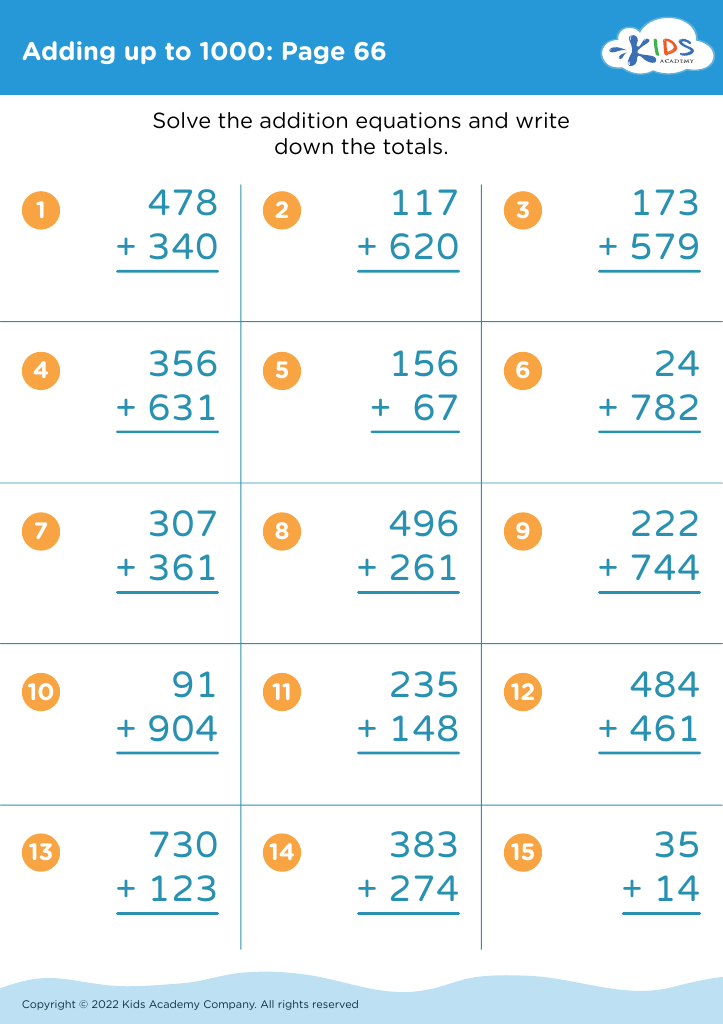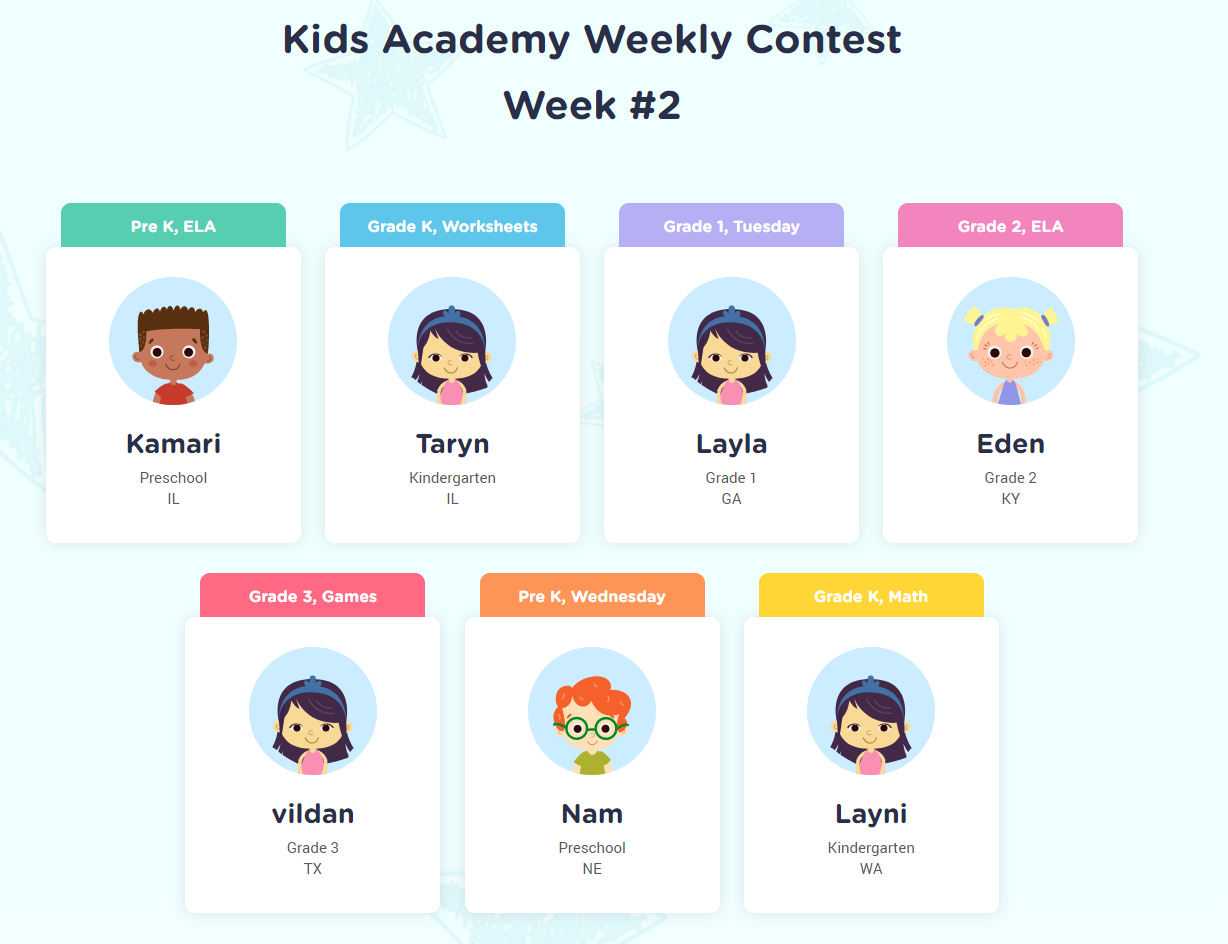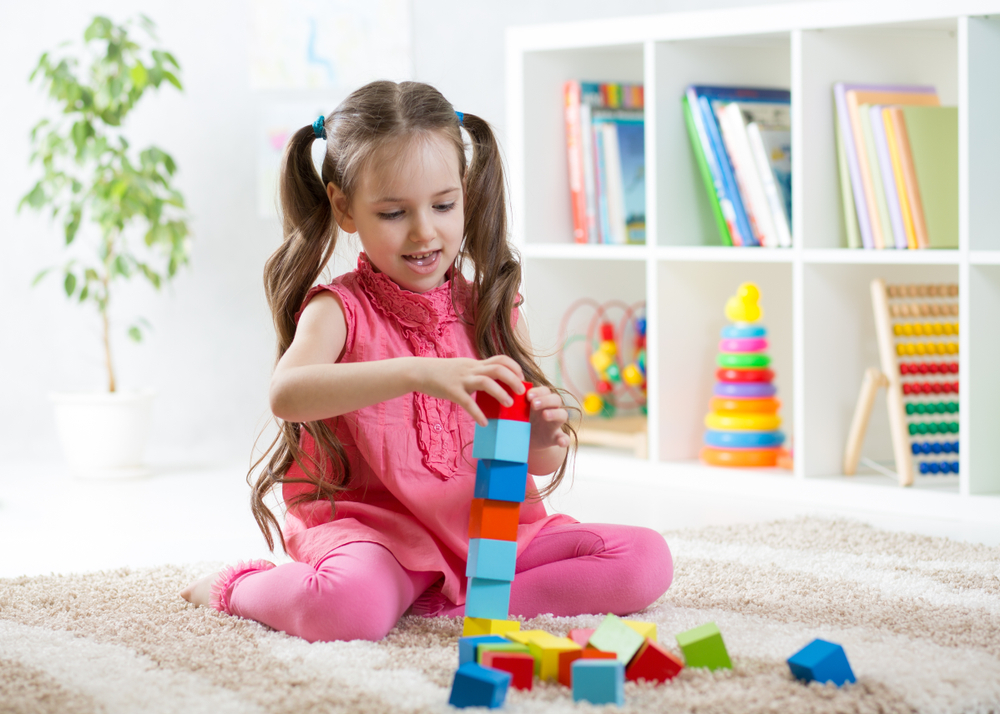Number comparison Math Worksheets for Ages 3-7
13 filtered results
-
From - To
Explore our engaging Number Comparison Math Worksheets designed specifically for children aged 3-7! These fun and interactive resources help young learners develop essential math skills while grasping the concept of comparing numbers through visual aids and engaging activities. Our worksheets encourage hands-on learning, allowing kids to better understand greater than, less than, and equal to relationships. Ideal for parents, teachers, and homeschoolers, these materials ensure an enjoyable learning experience that strengthens foundational math abilities. With colorful illustrations and easy-to-follow instructions, these worksheets make number comparison a delightful adventure for young mathematicians! Download now and watch your child's confidence soar!
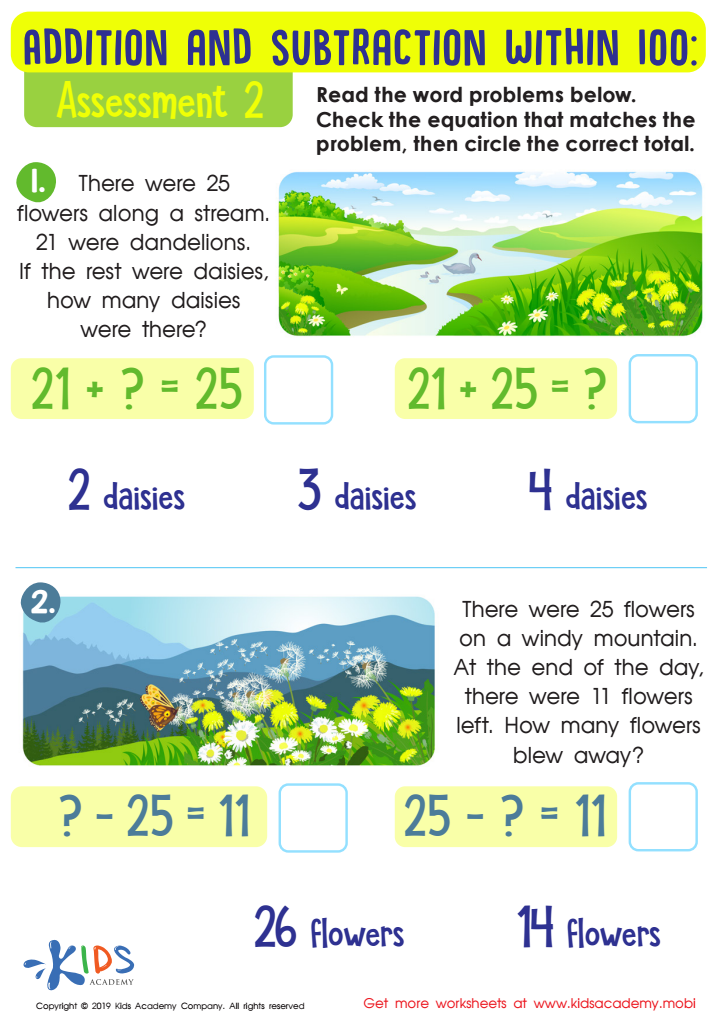

Assessment 2 Math Worksheet
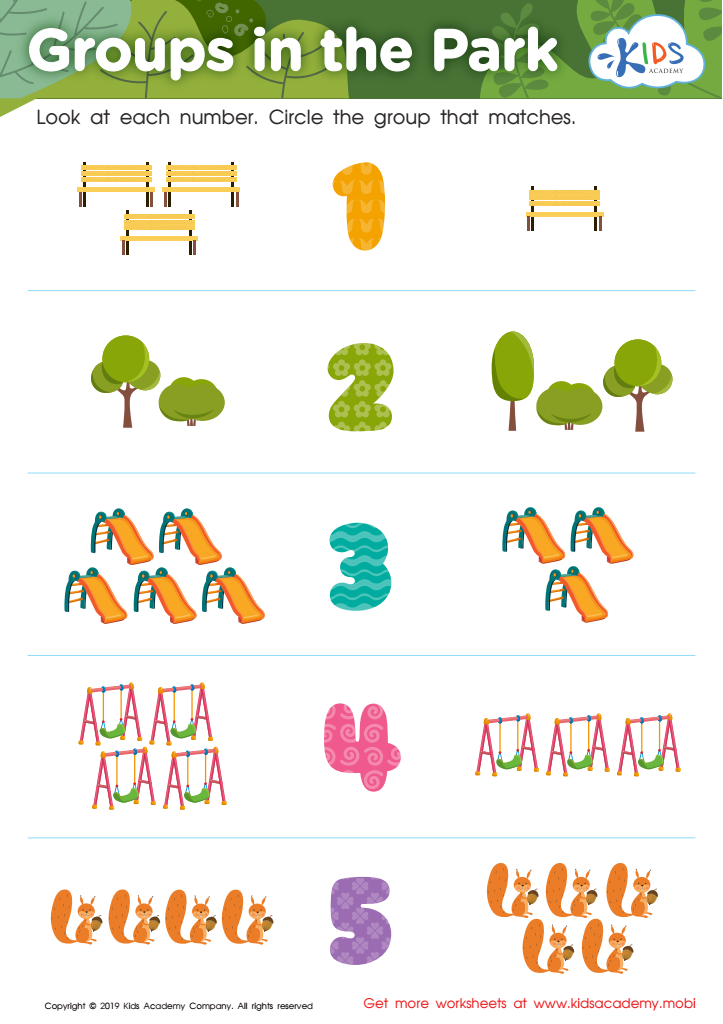

Groups in the Park Worksheet
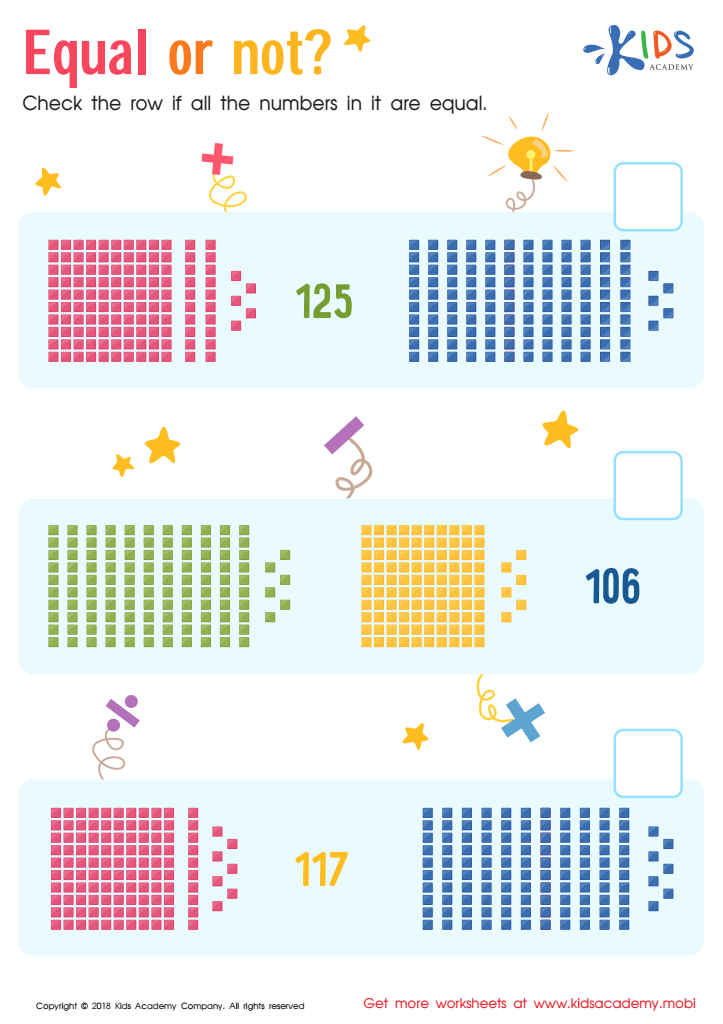

Equal or not Worksheet
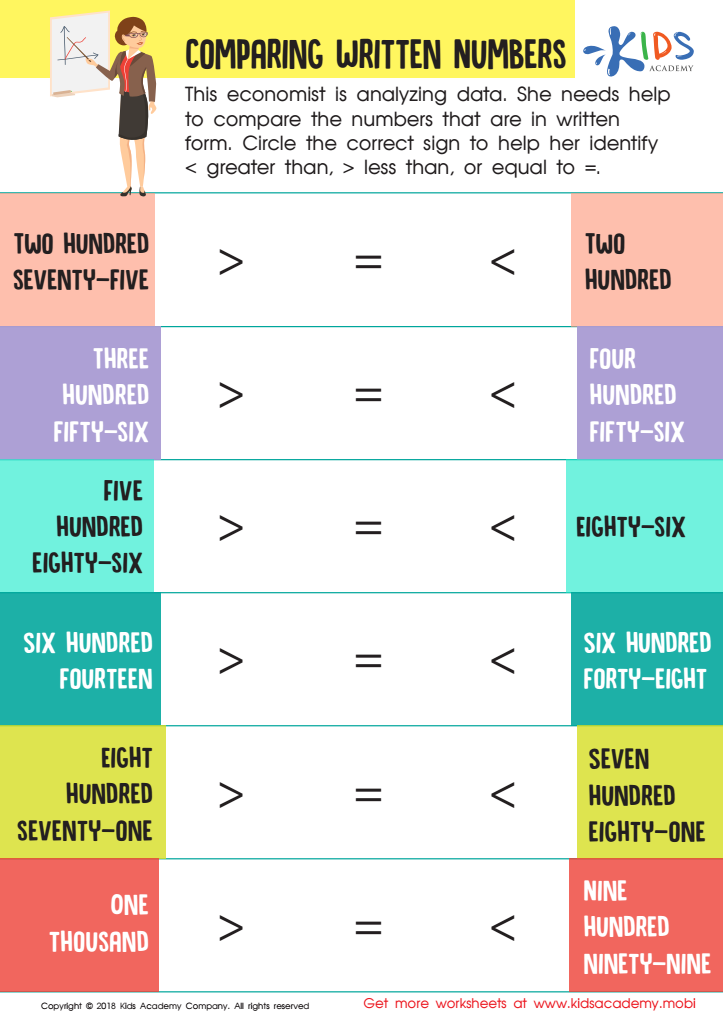

Comparing Written Numbers Worksheet
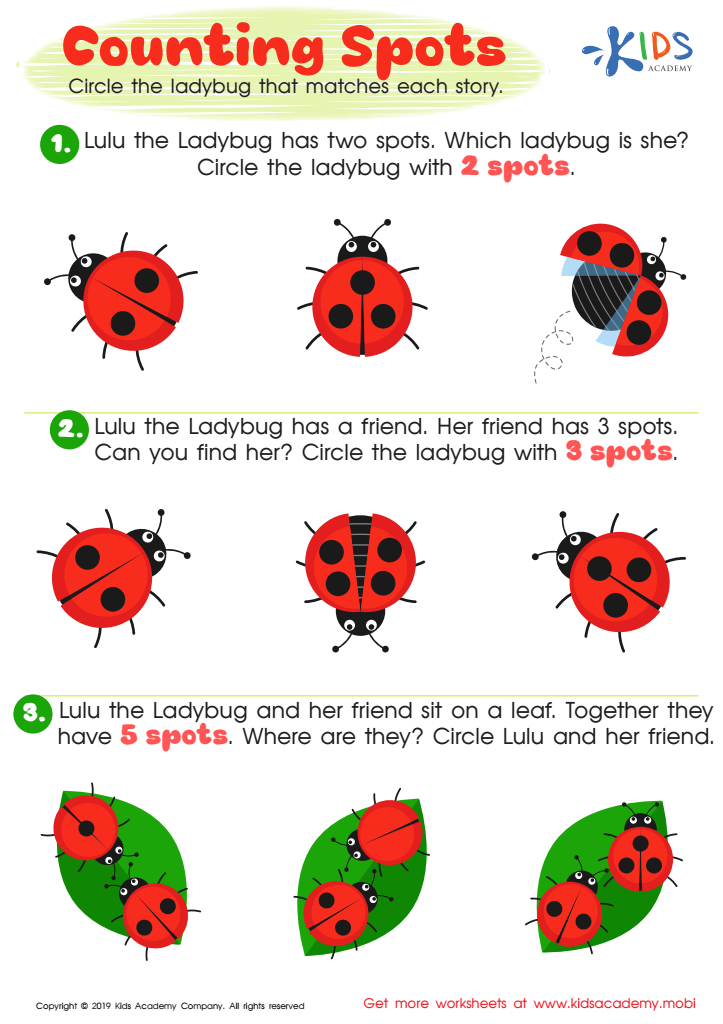

Counting Spots Worksheet
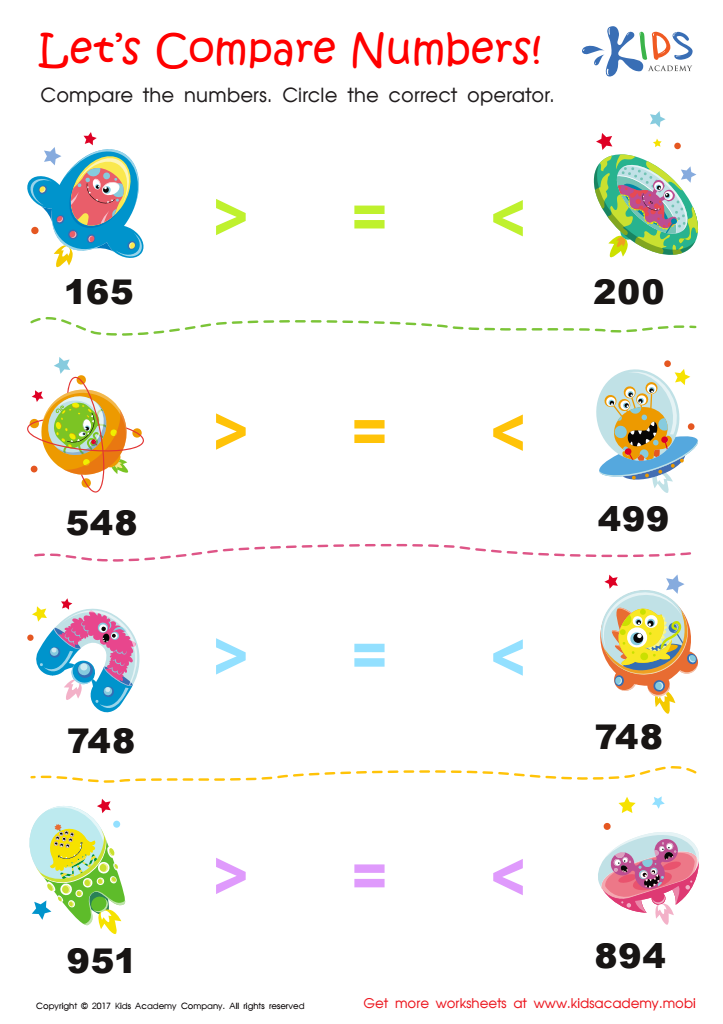

Comparing Numbers Worksheet for 2nd Grade
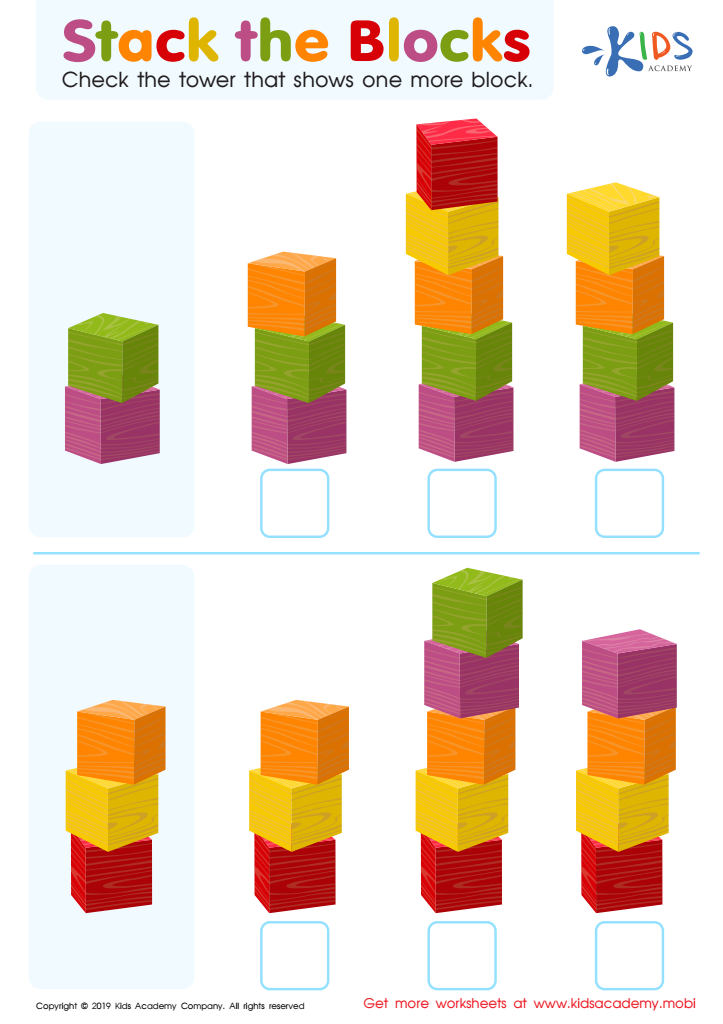

Stack the Blocks Worksheet
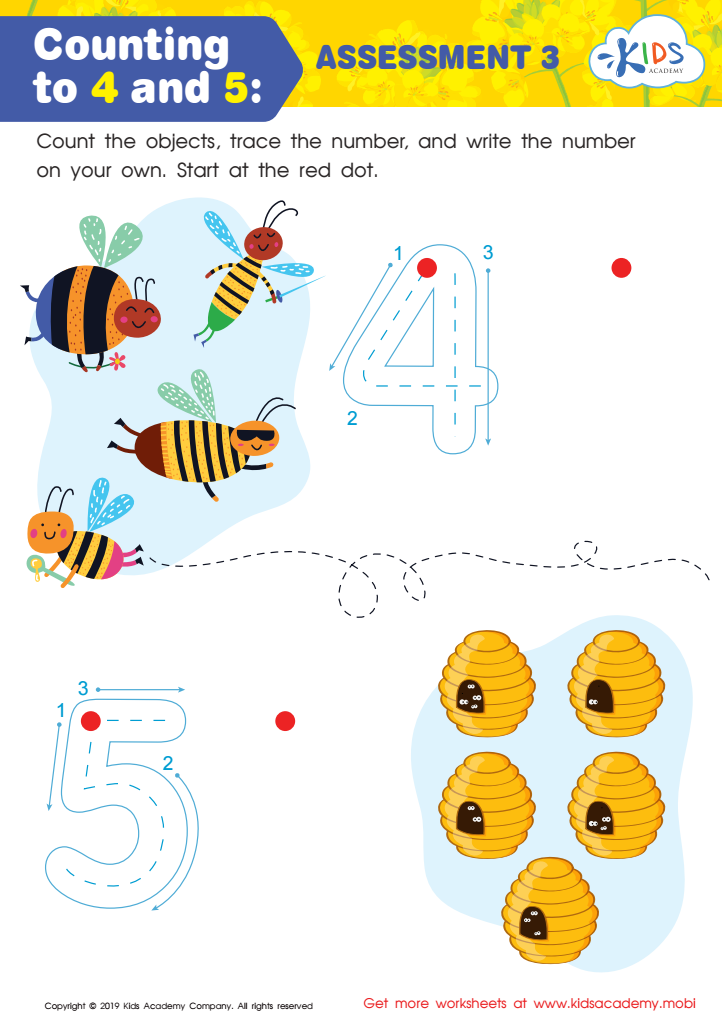

Counting to 4 and 5: Assessment 3 Worksheet
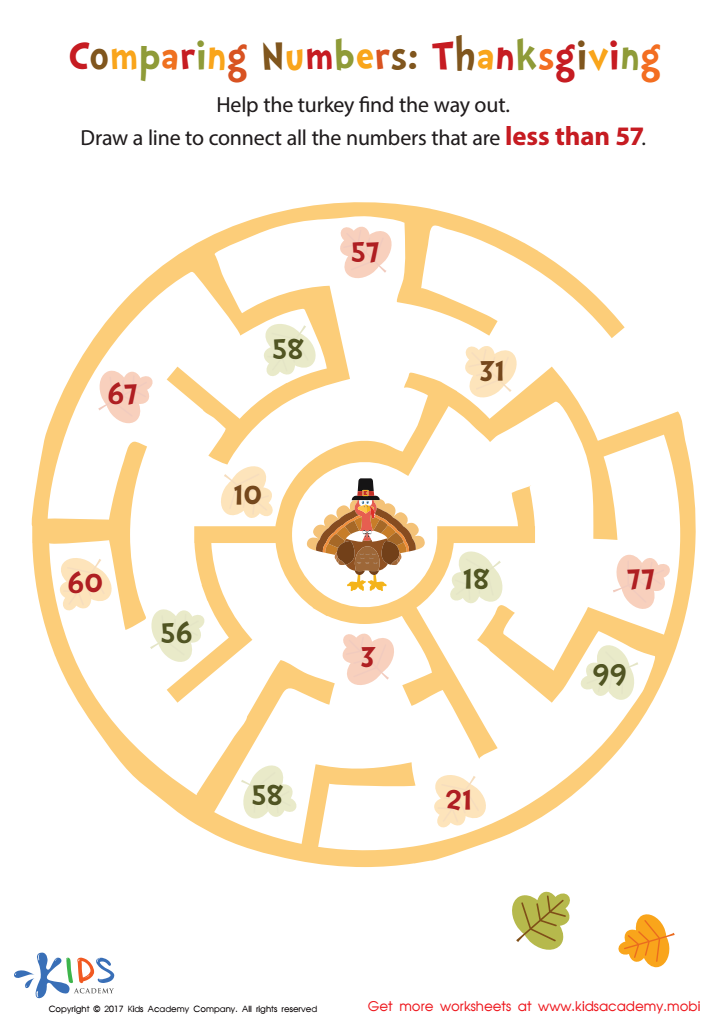

Comparing Numbers Printable
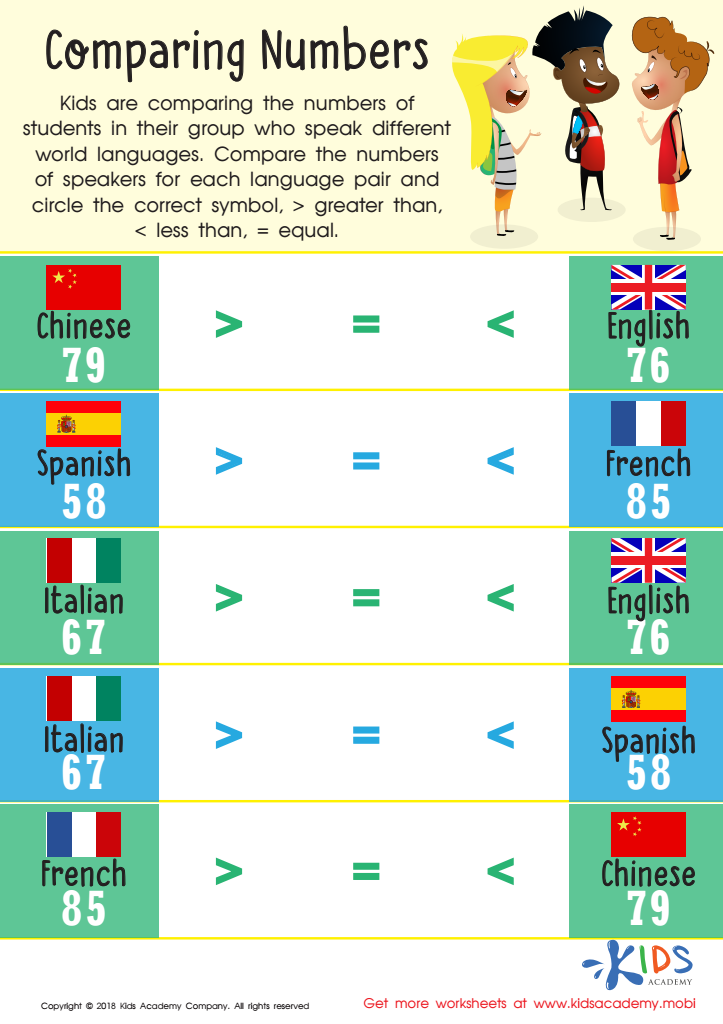

Comparing Numbers Worksheet for 1st Grade
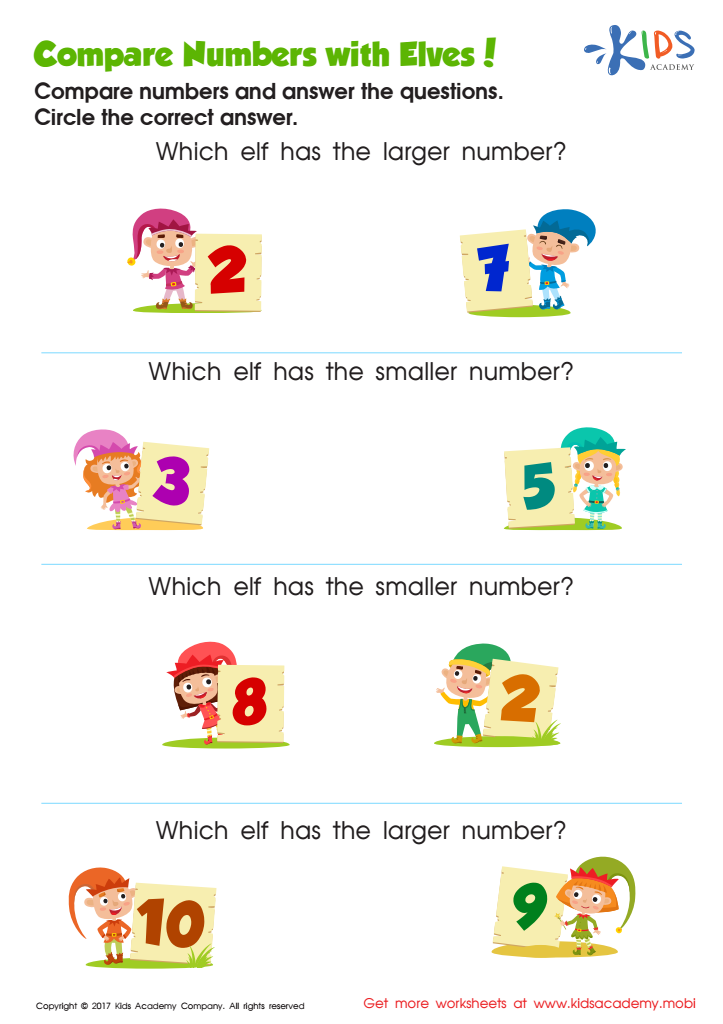

Comparing Numbers Worksheet for Kindergarten
Number comparison is a crucial early math skill for children aged 3-7, and it significantly impacts their overall mathematical development. At this age, children start developing foundational cognitive abilities that are essential for more complex mathematical concepts later on. By engaging in number comparison, children learn to recognize quantitative relationships, understand the size of numbers, and build confidence in their problem-solving skills.
Parents and teachers should care about this skill because it lays the groundwork for more advanced mathematical concepts such as addition, subtraction, and even early algebra. A solid grasp of number comparison enhances children's ability to make sense of numerical information they encounter in everyday life, fostering critical thinking and logical reasoning skills.
Additionally, number comparison activities, such as using manipulatives or number lines, promote fine motor skills and encourage active learning experiences. In an increasingly data-driven world, these skills are vital for overall academic success. Encouraging children to practice number comparison not only teaches them math but also instills a positive attitude toward learning, setting a strong foundation for lifelong learning and curiosity about mathematics. Therefore, parents and teachers should prioritize and support this skill in early education.

 Assign to My Students
Assign to My Students

